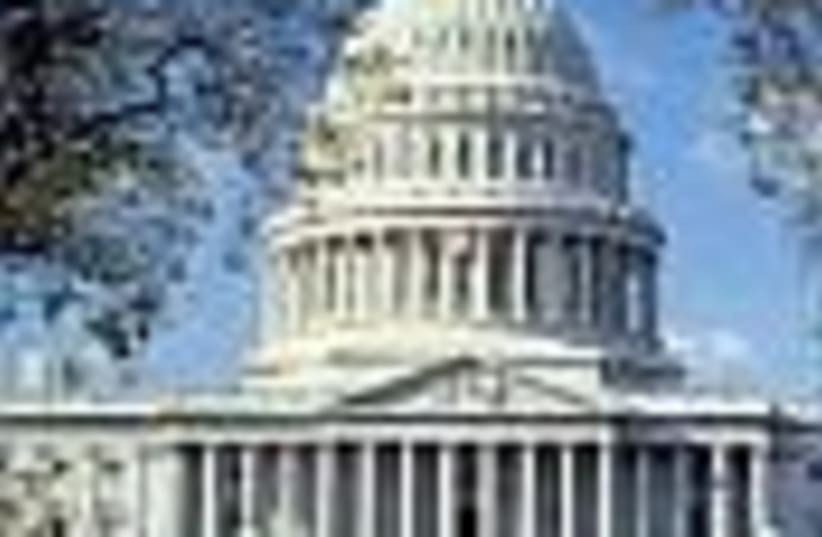The strategy is to clear out "the toughest places" so the enemy finds no sanctuary, and "to disrupt foreign support for the insurgents." Continued Rice: "We are working to hold and steadily enlarge the secure areas, integrating political and economic outreach with our military operations... to build truly national institutions by working with more capable provincial and local authorities."
There's nothing wrong with this strategy; but with a mere 150,000 troops on the ground to control a violent, 432,000-sq. km. country of 26 million people, you don't have to be Sun Tzu to figure out that this approach probably comes too late.
To understand just how bad things are, listen to the good news. Rice told the senators that compared to last year, "security along the once-notorious airport road in Baghdad has measurably improved."
Measurably, noch. You also don't have to be a Saddam-loving, antiwar-marching, Israel-bashing anarchist to recognize that "victory" is not an option.
The idea of attacking Iraq in the wake of 9/11 (2001) was hardly a bright one from the get-go. Saddam Hussein wasn't behind Osama bin Laden, and thus attacking Iraq was a mindless, unforgivable distraction, one that made it possible for the Islamist menace to metastasize further.
Iraq is - always was - the wrong war in the wrong place, led by a man who does not read papers or watch TV news.
Saddam did not have weapons of mass destruction, despite the fact that the administration had "no doubt" he did. Nor will America bring democracy to Iraq, because Western notions of representative government, pluralism and respect for minorities are culturally alien to the Middle East.
IN THE onslaught of Iraqi-datelined news it's useful to step back and gain perspective. The war was launched in March 2003. On April 9, Saddam's 20-foot statue in Baghdad was brought down. The next day, Ken Adelman, one of the neoconservative advocates of the war, wrote an op-ed in The Washington Post gloating that prognostications about Iraq being a "cakewalk" had proved accurate after all. On May 1, wearing a flight suit, Bush landed on the aircraft carrier USS Abraham Lincoln to declare: "Major combat operations in Iraq have ended."
That month the US also made what is now widely recognized as the biggest mistake of the war. Rather than co-opt or rehabilitate them, the occupation authorities disbanded the Iraqi army and dismissed Ba'athist civil servants. Many are today the backbone of the "insurgency."
On December 13, 2003 US forces captured Saddam. The Iraqi Interim Government was formed in June 2004. In January 2005, Iraqis voted to elect a 275-member Transitional National Assembly. Last Saturday Iraqis held a referendum to approve a new constitution crafted by that assembly. Parliamentary elections are scheduled for December.
The day after a new Iraqi government is formed, and without fanfare, US forces should be withdrawn over a period of, say, 12 months.
Granted, it's possible that without US troops Iraq might disintegrate. It could become a haven for Islamic fundamentalism; a bloodbath could ensue, pitting the Shi'ite majority against the Sunni minority. And if all that happened, America would lose face - what's left of it - in the Arab world.
Which is why Rice warned the senators: "The terrorists want us to get discouraged and quit. They believe we do not have the will to see this through." But her boss never prepared the American people "to see this through." And he no longer has the credibility to do so.
Most Americans have given up on the war. In the latest Associated Press-Ipsos poll, 61 percent said they disapprove of Bush's handling of Iraq. Only belatedly has Bush even begun to describe the foe for what it is: a warped civilization, as opposed to a tactic ("terrorism").
IF IRAQ disintegrates into Kurdish, Shi'ite and Sunni statelets, so be it. America (and Israel) owe only the Kurds, in the north, a second thought. They can be adequately protected (as they were) by a US-enforced "no-fly zone" and by other Western military and diplomatic backing. There is nothing wrong with helping people who want to be helped and have demonstrated a capacity for helping themselves.
And if the Shi'ite and Sunni parts explode, wake me up when it's over. Expect the tactical alliance between the Sunni (secular) Saddamites and the Sunni (Islamist) Zarqawites to unravel. The rival - and majority - Shi'ite factions led by Moqtada al-Sadr, Grand Ayatollah Ali Hussein al-Sistani and Ayatollah Mohammed Baqir al-Hakim may have their own intramural scores to settle, when they're not busy fighting the minority Sunnis. All this internecine conflict just might complicate life for the mullahs in Persian Iran.
So rather than become a haven for Islamic fundamentalism, Iraq could well become a quagmire for the various Muslim factions: one big Islamist Roach Motel. Call me pitiless, but if Muslim Arabs want to murder each other, that's a problem for the Arab League and the Islamic Conference, not the West.
And if we are pleasantly surprised - if modernizing elites inside Iraq pull together, prevail over the Saddamite and Islamist beasts and, using newly created institutions and structures (parliament, elections, constitution), develop a workable federalist Iraq - no one will be happier than I.
Meanwhile, Israelis who wish America well should not want to see it bogged down in an Iraqi quagmire.
Perhaps the larger lesson of the Iraqi boondoggle is that the war against Islamist fascism was much too serious to be left in the hands of this administration. The next one will have to do better.
jager@jpost.com
